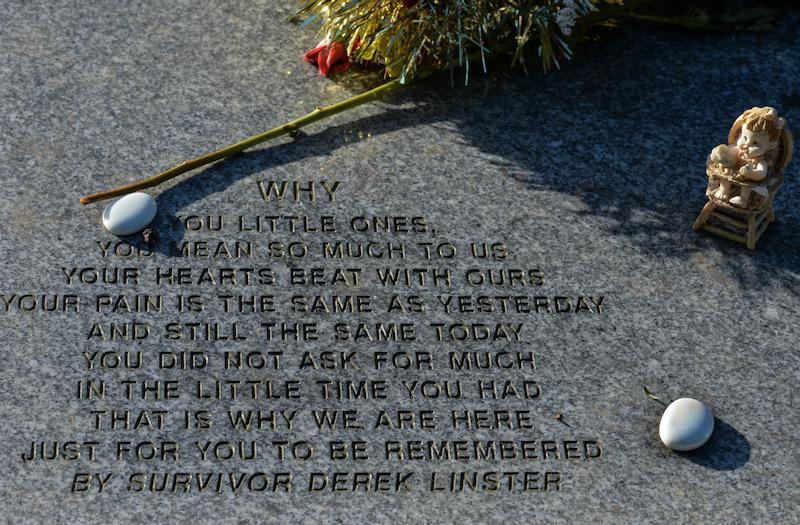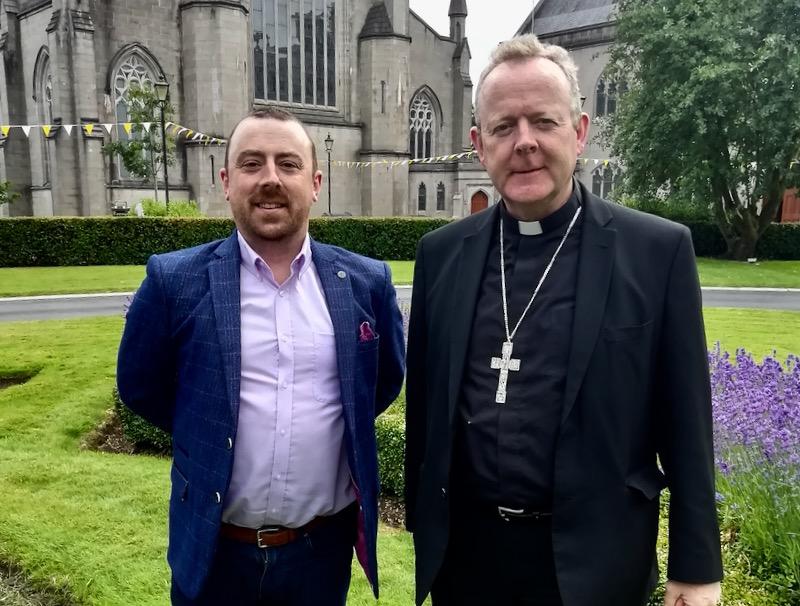|
Babies taken from women raped by priests
By Sarah Mac Donald
The Irish government has been accused of overlooking the “hidden” children of priests in its response to the Commission of Investigation’s Report on Mother and Baby Homes. The 3,000-page report, which was published on Tuesday, documents a number of cases where women ended up in mother and baby homes pregnant with a child fathered by a priest. Some of the women fell pregnant after they were raped by a priest. Vincent Doyle, whose father was a Catholic priest, and who founded Coping International, a support group for those in a similar situation, said analysis of the Mother and Baby Homes Report so far had overlooked the plight of children of priests. “Some of my clients who have come to Coping are mentioned in the report. I received a number of calls since the publication of the report. They noted, on one hand, that the Government rightly condemns what the report exposes. Yet, at the same time, it denies the existence of the marginalising conditions unique to the phenomenon of children of priests, thus enabling this stigma and intolerance to fester.” Both Doyle and these survivors of the mother and baby homes have accused the Irish Government of “deliberately and repeatedly” denying them help, “moral or otherwise”, as children of Catholic priests and perpetuating the secrecy and denial. Despite Taoiseach Micheál Martin’s state apology in the Dáil on Wednesday, one survivor told Vincent Doyle: “How can I believe them, when they deny that I have suffered at all?” Doyle described how the report highlights the consequences of the deliberate shaming and stigmatising of women and girls in the Irish State throughout the twentieth century. “These pillars of sexism and bigotry must be acknowledged and understood if they are to be removed from our society. This is why a State-led acknowledgement of the unique suffering experienced by children of priests and their mothers would have gone a long way towards promoting tolerance towards this marginalised group,” he said. He added: “Deliberate non-acknowledgement may be interpreted conversely as intolerance, rejection and/or condoning of shaming. “I do not believe children of priests should be treated differently in any way to others in the report. The Government have done just that, treated the children of priests and their unique set of experiences differently, denying them and denying the existence of their pain, ignoring the source of pain.” He criticised the Minister for Mental Health Mary Butler over her comment where she said: “While having empathy with anyone who feels that they have been treated unfairly by the religious orders and the legal and political systems of their domiciliary country, unfortunately the birth of children to priests does not necessarily give rise to mental health issues.” According to Vincent Doyle, Minister Butler side-stepped the fact that it is the “accompanying shame, scandal, and social conditioning, indeed a form of coercive control” that resulted in impaired mental health among children of catholic priests. “I have asked the Irish Government for years to speak about the issue of children of priests – noting the connection with sexual abuse. I asked the Government to encourage society to be more tolerant of children of priests and their mothers. However, they have denied my request at each turn.” The Mother and Baby Homes Report contains a number of testimonies of women who fell pregnant after being raped by a priest. One woman’s child was born in Pelletstown mother and baby home in 1956 when she was aged 25, after she was raped by a priest. She told the commission that she herself had been born in a workhouse and was brought up in industrial schools and a Magdalen laundry. When her child was nine months old, she was told that her baby was leaving. A nurse took a photo of the mother with her baby, and the woman still has the photo today. She was not told where the baby went, while she was sent back to work at the Magdalen laundry where she stayed for five more years. Another woman told the commission how in the early 1990s, when she was 26 years old, she fell pregnant while in a relationship with a priest. Because of the pregnancy, she had to leave her hometown. “I feel very stigmatised. There is a lot of pain around the fact that I was wrenched from my home – my emotional connection.” When her family and the Church learned that she was pregnant, she went to live with her sister in a city. She then made her own arrangements to go to a mother and baby home. The priest-father of her child brought her there. When her own father died, she was warned not to come to his funeral. Another testimony relates to the 1950s. The 16-year-old girl became pregnant, she said, having been raped by a priest. She went into a home and had her baby there. “A nun took my baby away,” she told to the committee, “and that was the last I saw of him. It was terrible the way they took the child away without telling you this was going to happen.” The witness said she later saw an adoption record which appeared to have her signature on it. “I couldn’t have signed it,” she told the committee, “because at the time, I didn’t know how to read or write.” She acquired these skills, she said, only after leaving the home. According to Vincent Doyle, anyone in mother and baby homes who enabled, tolerated, or turned a blind eye towards rape should be prosecuted. He also warned that girls and woman continue to fall pregnant by catholic priests and some are the victims of rape. “This still occurs today in various parts of the world. The mother’s victimisation is shrouded behind the shame associated with her pre-wedlock maternity. The child becomes a gag, the mother is shamed instead of being listened to.” He said the state has a “vital” role in condemning such marginalising attitudes towards those involved. “Owing to pre-marital clerical pregnancies in developing cultures, the clerical abuse of minors has not been revealed to its fullest extent thus enabling it to continue. For many it is worse that a priest fathered a child than the crime of rape.” “This is why it is vital for state governments, including Ireland, to promote tolerance toward these ostracised mothers and their children. Until inclusion is promoted, marginalisation keeps transparency at bay. The state informs how people think and silence on the issue promotes just that, silence, and nothing more.”
|
.
Any original material on these pages is copyright © BishopAccountability.org 2004. Reproduce freely with attribution.

